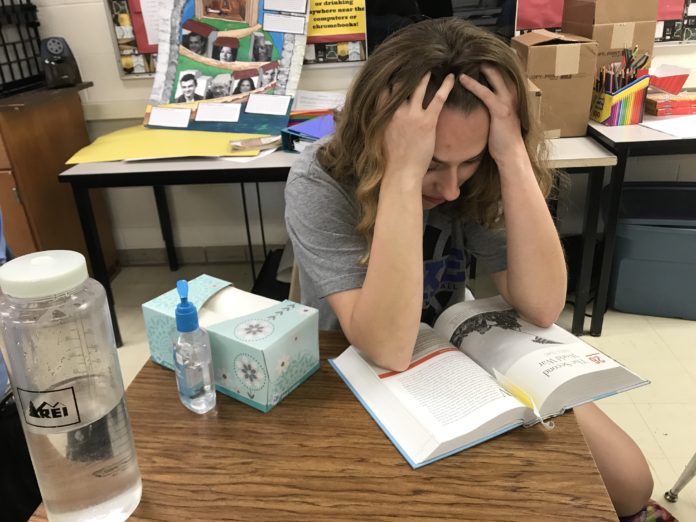
Recently, it has not been uncommon to arrive in class and find multiple seats empty, with friends and classmates out sick with the flu.
The nation is currently experiencing the worst flu season in more than a decade. As of February 28, more than 200 have died of the flu in North Carolina this season, which began October 1.
The elderly and young children are at the greatest risk of flu-related deaths. Early signs of the flu include a headache, fever and fatigue.
Chapel Hill High School nurse Lorraine Bleeke has several suggestions for how to stay healthy.
“Students and faculty can protect themselves by washing their hands frequently, coughing into their sleeve, getting at least seven hours of sleep a night, eating healthy, staying hydrated, exercising and taking a multivitamin or a probiotic,” she said.
While public officials still encourage vaccinations, this year’s shot has been less effective than in previous years. Those still looking to get their flu shot now may have to visit several different pharmacies, since, due to increased demand, many drug stores such as CVS have started to run low on vaccines.
Junior Allison Laufenberg was unable to find room in her schedule to get her flu shot this year and got sick in late January. She blames the large workload that she and many of her peers deal with for spreading the illness.
“I think it’s really hard for the upperclassmen when they get sick, because nobody wants to miss a day of school, since none of the work gets excused,” she said. “So it’s hard to decide when you actually need to stay home and when you can just tough it out until the weekend, at the risk of spreading it to other people.”
Laufenberg was absent only one day, but faced making up a lab, test, and hours of homework upon her return. While she is used to staying up late, recovering from the flu made the long nights of homework difficult.
“After being sick, it was really rough by the end of the week having to [stay up late] so many times in a row. Staying up until one in the morning, catching up on work and then having to wake up at 7:30 to go to school and get more work was not the best experience,” Laufenberg said.
Junior Ali Porterfield also found missing school due to sickness to be a difficult experience.
“It was really stressful because I missed a discussion and two tests,” she said.
Latin teacher Erin Baldwin has noticed a decrease in students in her classes.
“Every week this month, I have had at least one student in every class out with the flu for multiple days in a row,” she said.
Missing school affects both students and teachers. Having multiple students absent disrupts Baldwin’s teaching strategy.
“I try to put everything we do on our Google classroom, but I find students do not check there, so they fall behind,” she said. “I also haven’t been able to return tests because I’m waiting on students to take the tests, or finish assignments. And then, of course, I need to be here for my students while they do their work. In the past two weeks, I have gone home late almost every day.”
Several schools have been forced to close due to the spread of the sickness. Carmel Christian School in Matthews, North Carolina, closed for a week in early January after 160 students were out in a single day from the flu.











